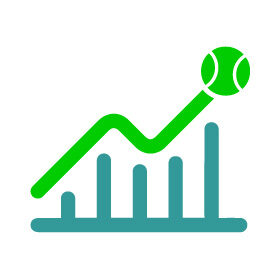In the vast landscape of investments, Bitcoin and Sports Trading represent two radically different approaches, each with its own characteristics, advantages, and the inherent risks of the sector. But what are the peculiarities of one compared to the other? Let’s clarify and delve deeper into both topics.
Table of Contents
ToggleWhat are Bitcoin and Sports Trading?
Bitcoin is a digital cryptocurrency launched in 2009 by an individual or group under the pseudonym Satoshi Nakamoto. It is based on a technology called blockchain, which ensures transparency and security in transactions. Bitcoin investments primarily involve purchasing the cryptocurrency with the hope that its value will increase over time.
The subject is broad, and it’s good practice to delve deeper to expand financial knowledge. Over its history, Bitcoin has undergone rapid evolution, attracting both supporters and detractors. The reasons are varied: its volatility, complexity, and even environmental sustainability concerns.
Sports Trading, on the other hand, involves buying and selling odds of sporting events on specialized platforms, such as exchanges. Unlike traditional betting, where you bet on a specific outcome, sports trading focuses on fluctuations in odds, similar to stock or currency trading. Sports traders aim to profit by buying odds at low prices and selling them at higher prices, regardless of the event’s outcome.
Volatility: the heart of the debate
As highlighted in the earlier definitions, volatility is central to evaluating the risk and return of any investment. Bitcoin and sports trading differ significantly in terms of volatility and predictability.
Bitcoin: a financial rollercoaster
Bitcoin’s volatility is notoriously high. For instance, its price can swing by 10% or more in a single day. These movements are influenced by various factors:
- Macroeconomic news: Changes in regulations or market sentiment can trigger sharp movements.
- Supply and demand: The limited supply of Bitcoin, capped at about 21 million units, contributes to increased volatility.
- Speculation: Many investors treat Bitcoin as a speculative tool rather than a stable currency.
This volatility presents significant opportunities for experienced traders but poses immense risks for those without a well-defined strategy. In any case, a structured strategy with clear goals is essential for successful investing. Individual circumstances, such as financial situation and risk tolerance, also play a role in shaping one’s approach.
Sports Trading: more concrete movements
In sports trading, volatility manifests differently. Odds can shift rapidly during a match in response to unexpected events, such as a goal, a player being sent off, or an injury. However, compared to Bitcoin, the scale of these variations is smaller. Odds generally move in fractions of a percentage point, and risks can be mitigated through hedging strategies.
That said, the predictability of sporting events is also limited. An event that seems predictable can turn into a surprise, causing losses for those unable to react quickly.
A key aspect: tangibility and comprehensibility
When it comes to investments, tangibility refers to both the physical existence of an asset and the comprehensibility of the market.
Bitcoin is not a tangible asset in the traditional sense; it does not exist physically, and its value relies entirely on market trust. However, it does possess “technological tangibility”: the blockchain ensures a transparent and secure transaction record. Bitcoin’s movements can be mapped and traced, offering a certain degree of reliability.
The lack of physical tangibility, however, can be a hurdle for traditional investors, who may find it difficult to assess Bitcoin’s intrinsic value. Its dependence on macroeconomic and technological factors makes it a more complex asset than conventional investments.
Sports trading, on the other hand, is tied to tangible events—sports matches and competitions. This direct connection to the real world makes it a more accessible and relatable investment for many. Professional sports traders base their decisions on data and performance analysis, a process that becomes more familiar and accessible with time and experience.
Nonetheless, the tangibility of sports trading does not eliminate its uncertainty. Sporting performances can be influenced by unpredictable factors, such as weather conditions, referee decisions, or athletes’ emotional states. Mastering the ability to interpret these factors is what defines a professional sports trader.
Strategies and returns
Bitcoin investments can be approached in two main ways:
- Hodling: Purchasing the cryptocurrency and holding it long-term, hoping its value increases over time.
- Active trading: Leveraging daily fluctuations to achieve quick profits.
While the first approach is relatively straightforward and geared toward long-term management, the second requires advanced technical skills, a deep understanding of the market, and strong risk management capabilities.
In sports trading, success depends on the ability to react quickly to events and implement advanced strategies, such as pre-match trading (before the event starts) and in-play trading (during the event itself). Expert sports traders often use statistical analysis tools to predict odds movements.
In both cases, returns depend on the investor’s ability to understand market dynamics and make informed decisions. Randomness or luck is not a factor in professional investing.
Conclusion
Ultimately, the choice between investing in Bitcoin or engaging in sports trading depends on various factors, such as:
- Personal preferences
- Risk tolerance
- Market knowledge
Bitcoin represents a highly volatile option with significant return potential but comes with substantial risks. Sports trading, on the other hand, offers a more tangible and customizable approach, often appealing to sports enthusiasts, but it requires a deep understanding of sports dynamics and quick decision-making skills.
What is the right choice? There is no definitive answer. The key is understanding your own personality and approach to such activities. However, one undeniable truth remains: the most important investment is in your financial education. Research, discuss, and only then draw your conclusions.





